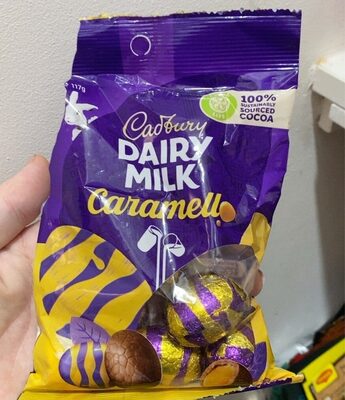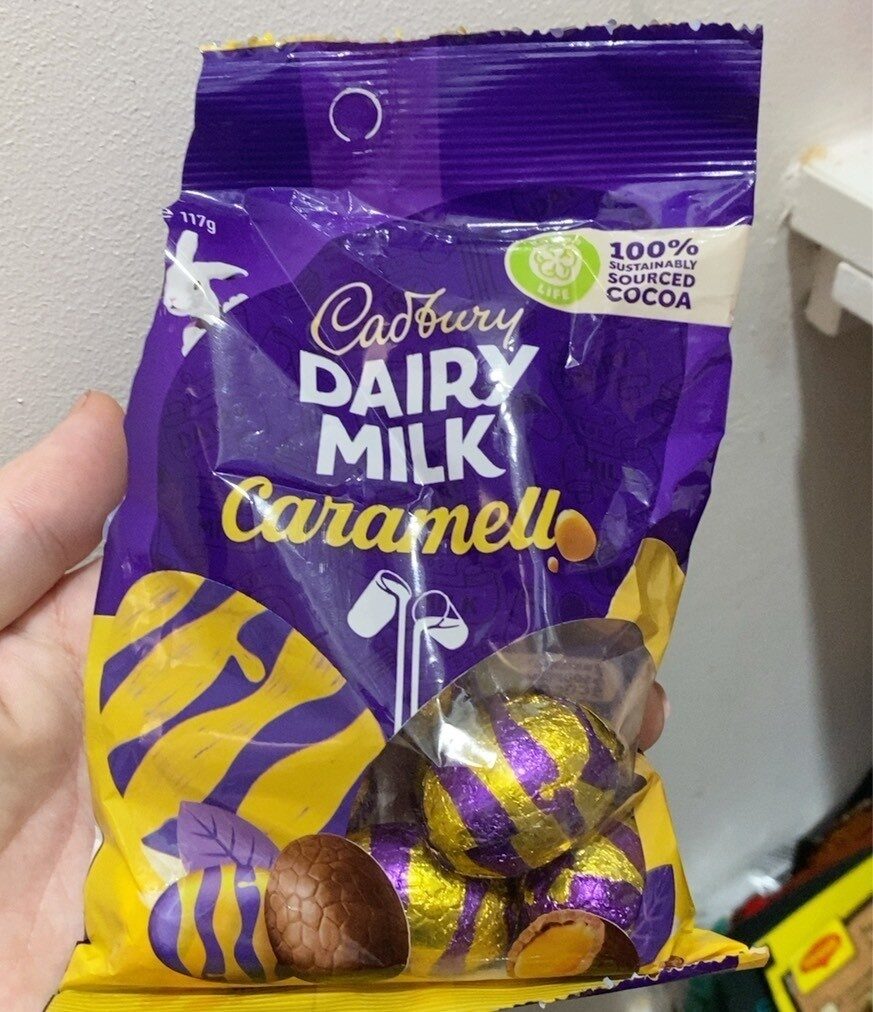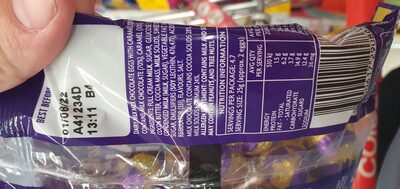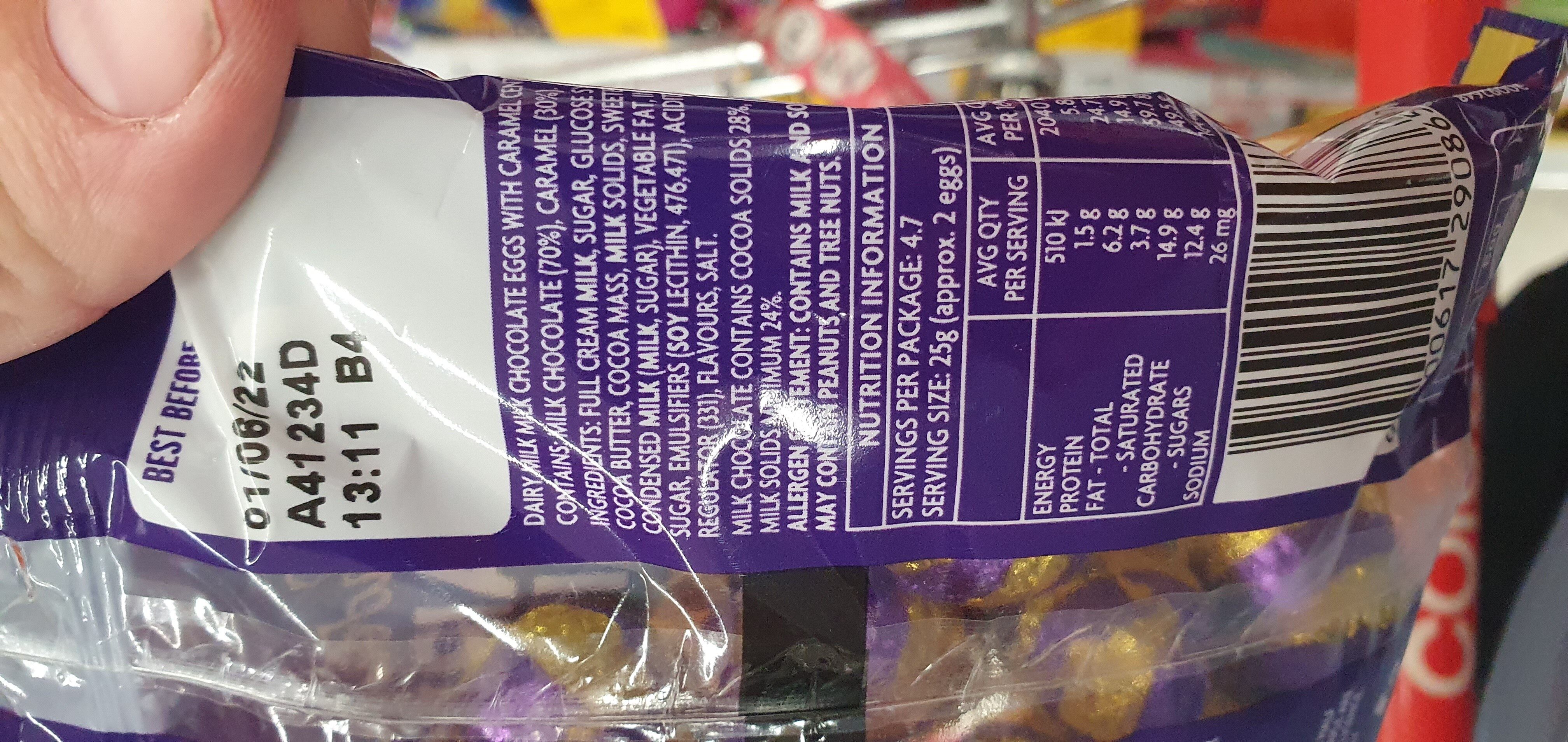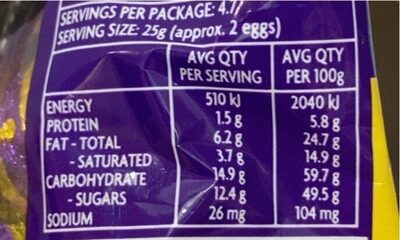Dairy Milk Caramello - Cadbury
This product page is not complete. You can help to complete it by editing it and adding more data from the photos we have, or by taking more photos using the app for Android or iPhone/iPad. Thank you!
×
Barcode: 9300617290865 (EAN / EAN-13)
Brands: Cadbury
Categories: Snacks, Sweet snacks, Cocoa and its products, Festive foods, Chocolates, Easter food, Chocolate eggs, Easter eggs
Stores: Woolworths, Coles
Countries where sold: Australia
Matching with your preferences
Environment
Packaging
Transportation
Report a problem
Data sources
Product added on by inf
Last edit of product page on by kiliweb.
Product page also edited by archanox, ecoscore-impact-estimator, yuka.sY2b0xO6T85zoF3NwEKvlnFrd9zXs2r1GgDupk_Xzcq-JZHtR4gq_62qMqg.
If the data is incomplete or incorrect, you can complete or correct it by editing this page.
